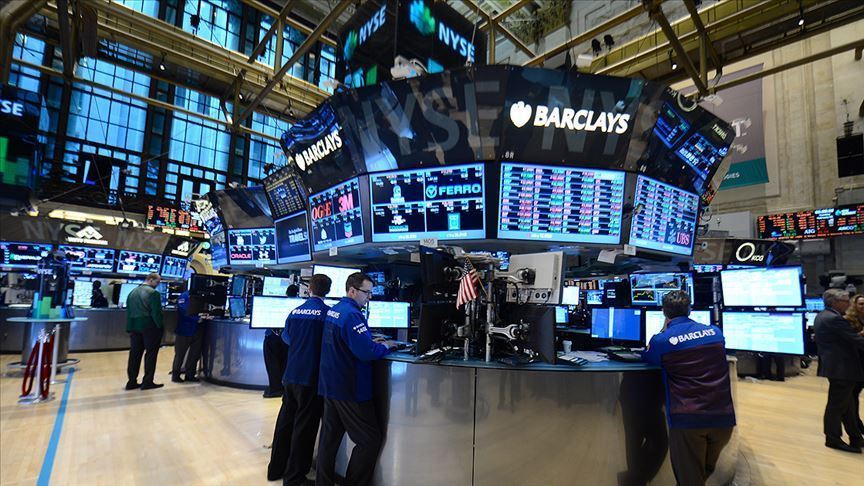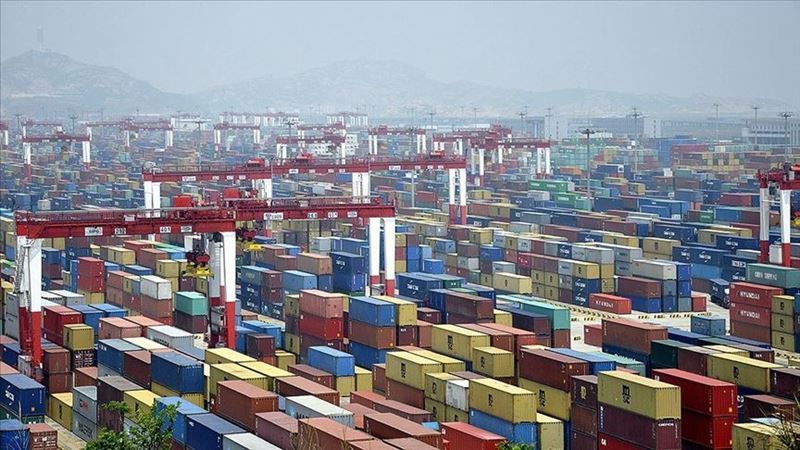Russian President Vladimir Putin signed a decree requiring "unfriendly" countries to pay for Russian gas in rubles. Emphasizing that the Russian gas contracts will be stopped if payment is not made in rubles, Putin stated that the decree will come into effect as of today. After the decision, countries such as Germany and France announced that they would not pay in rubles, creating uncertainty in the energy markets, while natural gas contracts for April in Europe rose from 108 euros to 127 euros. The barrel price of Brent oil, on the other hand, is flat today, after seeing below $ 104 with a 5 percent decrease yesterday, with the news that the USA will release the highest amount ever from its strategic reserves in the next 6 months.
In the face of Russia's move, the US administration targeted Russia's technology sector and added 21 institutions and 13 people to the sanction list, including Mikron, the country's largest microelectronics manufacturer. The Russian Ministry of Foreign Affairs, on the other hand, announced that they had decided to impose sanctions on the senior executives of the EU, in accordance with reciprocity.
Uncertainties regarding geopolitical risks, the continuation of inflationary pressures led by energy and food, and the expectations that central banks will tighten their monetary policies more aggressively. While this situation brings with it the concerns of global recession, the activity continues in the bond markets, where the first signals of this situation are received. The 10-year bond yield of the USA, which moved at the level of 2.31 percent yesterday, started to rise today and tested 2.40 percent.
With these developments, a negative trend was observed in the New York stock market, where intense data flow was also followed yesterday. The Dow Jones index fell 1.56 percent, the S&P 500 index fell 1.57 percent and the Nasdaq index lost 1.54 percent. While the dollar index rose from the lowest levels in about a month yesterday and closed at 98.3, today it is at the level of 98.5. US index futures contracts started the new day with buyers.
While the energy problem, which became critical after the war, and the search for an alternative to Russian gas remained at the center of the agenda, the concerns about the economy became more and more discussed in parallel with the increasing inflationary pressures and the sanctions imposed. In this context, while the inflation data of the Eurozone, which will be announced today, are expected to have an impact on the direction of the markets, the summit meeting to be held with the main agenda of the war in Ukraine between the European Union (EU) and China will be closely followed.
At yesterday's close, the DAX index in Germany lost 1.31 percent, the CAC 40 index in France by 1.21 percent and the FTSE 100 index in the UK by 0.83 percent. With the effect of the strengthening in the dollar, the euro/dollar parity depreciated by 0.8 percent yesterday and closed at 1.1067, while it remains flat today. It is noteworthy that European index futures contracts started the new day with buyers.
Across Asia, closure measures continue in the face of the increasing number of new types of coronavirus (Kovid-19) cases in China, while the country's central bank continues to intervene in the above-target yield rates in Japan by buying bonds.
On the other hand, according to the data announced today, the Manufacturing Industry Purchasing Managers Index (PMI) rose to 54.1 in Japan, while it fell to 48.1 in China, the lowest level since 2020. With these developments, Shanghai composite index in China increased by 0.6 percent and Sensex index in India increased by 0.4 percent, while Nikkie 225 index in Japan decreased by 0.6 percent and Kospi index in South Korea decreased by 0.8 percent.
BIST 100 index finished the day at 2,233.30, with a 0.14 percent appreciation in Borsa Istanbul, which followed a buyer-led course in the country yesterday. Dollar/TL, on the other hand, is traded at 14.6620 at the opening of the interbank market today, after closing at 14.6745 with an increase of 0.1 percent yesterday.
Analysts said that while central banks abandoned their supportive stance in the face of rising inflation, the economic and geopolitical risks that became evident once again accelerated the outflows in the global bond markets, while the relatively optimistic stance in the stock markets continued.
Analysts stated that today the inflation in the Euro Zone and the employment report in the USA are of critical importance in terms of guiding investor pricing, and that the manufacturing industry PMI data to be announced around the world will also come to the fore.
Recalling that today the credit rating agency S&P is expected to announce the evaluation report on Turkey's credit rating after the markets are closed, analysts stated that technically, the BIST 100 index 2.150 and 2.130 levels are in the support position and 2.300 points are in the resistance position.
The data to be followed in the markets today are as follows:
10.00 Turkey, March ISO manufacturing industry PMI
10.55 Germany, manufacturing PMI for March
11.00 Eurozone, manufacturing PMI for March
11.30 UK, manufacturing PMI for March
12.00 Euro Zone, CPI for March
15.30 US, March non-farm employment and unemployment rate
16.45 US, manufacturing PMI for March
17.00 US, March ISM manufacturing PMI











Comments
No comment yet.